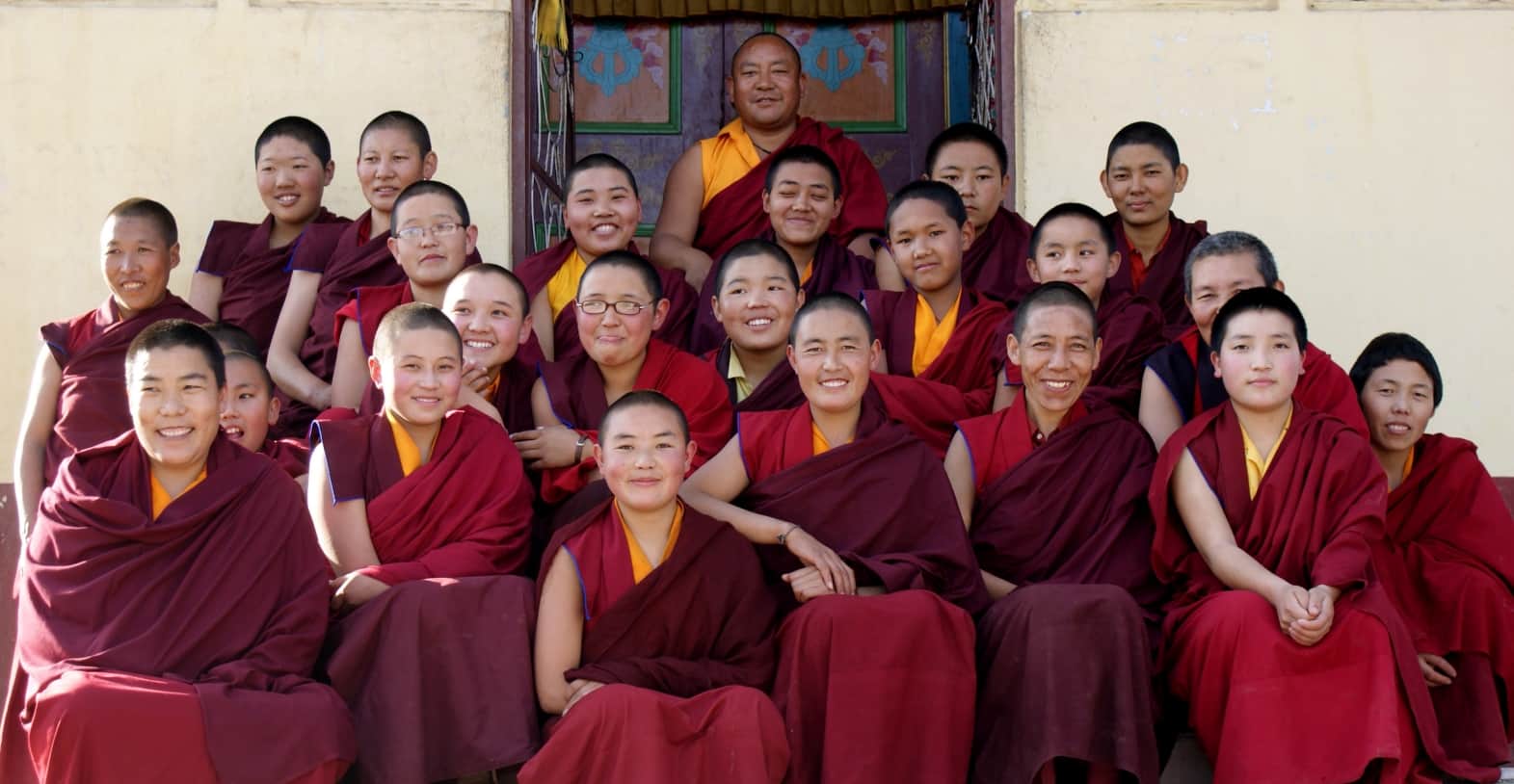What is Mahayana Buddhism?
Mahayana Buddhism, one of the major branches of Buddhism, emerged around the first century CE as a reformist movement seeking to expand upon the teachings of the historical Buddha, Siddhartha Gautama. Literally translated as the “Great Vehicle,” Mahayana Buddhism emphasizes the ideal of bodhisattva, beings who strive for enlightenment not only for their own liberation but also for the benefit of all sentient beings.
Central to Mahayana philosophy is the concept of sunyata, or emptiness, which asserts the interdependence and interconnectedness of all phenomena. Mahayana scriptures include a vast array of sutras, among the most revered being the Prajnaparamita Sutras and the Lotus Sutra. Mahayana Buddhism is characterized by its inclusive approach, accommodating a diverse range of practices, beliefs, and deities, and it has spread throughout East Asia, including China, Japan, Korea, and Vietnam. Key Mahayana schools include Pure Land, Zen (Chan in China, Seon in Korea), and Tibetan Buddhism, each offering unique paths to enlightenment while upholding the core principles of compassion, wisdom, and altruism.
In Mahayana Buddhism, the fundamental value is bodhichitta, as a sincere desire to reach enlightenment for the benefit of all sentient beings. Analysis of Mahayana texts shows that, based on faith in reincarnation, the existence of kinship ties is recognized. It is emphasized that every living being was a mother for everyone else, reinforcing the interconnectedness and equality of all beings. Buddhists, convinced of reincarnation, regard all living beings as their mothers, underscoring the nurturing and compassionate aspects associated with the feminine in Mahayana Buddhism.
Female Monastics in Mahayana Buddhism
Respectful and tolerant attitudes towards women are characteristic of the Mahayana tradition. The first female monastic communities are examples of the perception of women as equal members of society. Penetration of Indian Mahayana Buddhism into other Asian countries contributed to the high status of women in the East and the progressive development of society. Moreover, Mahayana Buddhism emphasizes the importance of compassion and equality among all beings, regardless of gender, fostering a culture of respect for women’s roles and contributions.
The Lotus Sutra tells the story of the daughter of a dragon king, who, at the age of eight, transformed into a male Buddha instantly to demonstrate that enlightenment is attainable by all beings. This narrative serves as a powerful symbol of gender equality and the potential for spiritual attainment irrespective of gender.
In China, where Mahayana Buddhism prevails, figures like Empress Wu, despite using Buddhism for political gain, helped elevate the status of women by promoting new sutras that emphasized the spiritual potential of women. This led to increased opportunities for nuns to practice alongside monks and participate in rituals, fostering a culture of respect and equality within Chinese temples.
Within Chinese Buddhism, Guanyin, derived from the bodhisattva Avalokiteshvara, is revered as one of the most popular Buddhist saints, embodying compassion and salvation. The veneration of Guanyin further highlights the significance of feminine qualities within Buddhist practice and devotion.
The 20th century brought revolutionary reforms that changed the status of women, even in Buddhist East Asian countries. In an effort to unite Buddhist women across Eastern and Western cultures, the international association “Sakyadhita” or “Daughter of The Buddha” was established. Founded by nun Karma Lekshe Tsomo, who belongs to the Mahayana tradition, this association aims to empower and support Buddhist women worldwide, reflecting the ongoing commitment to gender equality within the Mahayana tradition.
LEARN MORE ABOUT WOMEN IN BUDDHISM – here
8 Inspirational Books about Women In Buddhism
- Gyalwa Changchub. Lady of the Lotus-Born: The Life and Enlightenment of Yeshe Tsogyal by Gyalwa Changchub. Boston: Shambhala Publications, 2002.
Buy the book here - Women of Wisdom by Lama Tsultrim Allione. Snow Lion Publications, 2000.
Buy the book here - Dakini Teachings by Padmasambhava. Hong Kong: Rangjung Yeshe Publications, 1999.
Buy the book here - Skydancer – The Secret Life and Songs of the Lady Yeshe Tsogyal by Keith Dowman. Snow Lion Publications, 1996.
Buy the book here - Dakini’s Warm Breath: The Feminine Principle in Tibetan Buddhism by Judith Simmer-Brown, 2002.
Buy the book here - Dakini Power: Twelve Extraordinary Women Shaping the Transmission of Tibetan Buddhism in the West by Michaela Haas, His Holiness the Karmapa. 2013
Buy the book here - Wisdom Rising: Journey into the Mandala of the Empowered Feminine by Lama Tsultrim Allione, 2018.
Buy the book here - Feeding Your Demons: Ancient Wisdom for Resolving Inner Conflict by Lama Tsultrim Allione. Little Brown and Company, 2008.
Buy the book here



